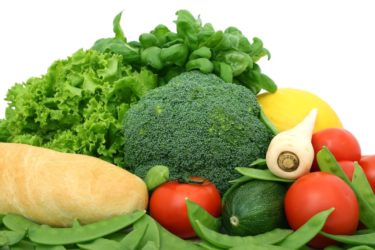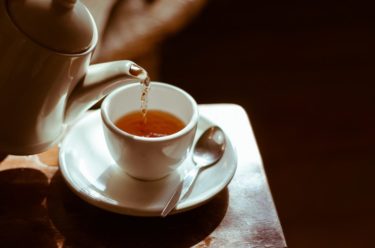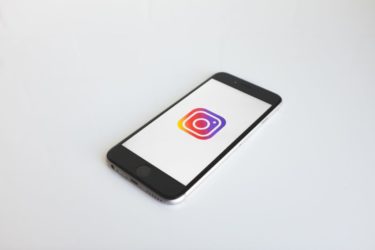As a healthcare professional, the amount of corona virus misinformation I’ve seen spread on social media over the past few weeks and months has been alarming. For many of us, rational thought around health has fled the nest and we’re left with an urge to do something to help ourselves. Enter quacks, the misinformed, and the fame-hungry, many of whom are profiting off this.
Here are the most common COVID-19 nutritional myths I’ve noticed floating around.
Immune-boosting supplements
In my view, the focus on ‘immune-boosting’ foods and supplements exists for two main reasons: (1) many people don’t understand how the immune system works, and (2) we like simple answers. Unfortunately, ‘immune boosting’ isn’t really a thing, and even if it were, we wouldn’t want it. You cannot turbocharge your immune system with something as simple as a vitamin C supplement. Your immune system, like many other systems in the body, is complex, and operates best within specific biochemical parameters. You don’t want your blood pressure to be too high or too low. Too little fibre in your diet isn’t great but too much is also painful. So if you could ‘boost’ your immune system with a simple supplement, you’d see a surge in the inflammatory response. This would mean more pain, fever, redness, swelling, and discomfort. All the things we take medication to try and dampen down in order to make day-to-day life more manageable.

Does this sound like something you’ve seen before? That’s because an immune system in overdrive is an example of an autoimmune disorder, where the body begins to attack itself.
The only supplement I’d happily recommend is a daily vitamin D supplement, and even then, only if you’re spending less than 30 minutes outside in the sun with exposed skin each day.
The virus can’t survive above 26 degrees C, so if you drink hot water you won’t catch it
This one is simple. Its loosely based on the idea that viruses tend to be far more widespread in the winter months. Unfortunately, what this particular idea fails to take into account is that the human body has a temperature of around 37 degrees C, which is far higher than this.

The virus is also spreading in countries that have been experiencing summer, with high temperatures. So no, hot water won’t help.
If something as simple as hot water prevented COVID-19, no one in the UK would have it thanks to our near psychopathic reliance on mugs and mugs of tea.
An alkaline/vegan/keto diet will fix it
Uncertain times tend to push people further into their entrenched beliefs. Right now we’re seeing militant vegans on Instagram argue that eating animals is the reason why we have coronavirus, while the constipated keto pushers on Twitter argue that not eating carbs somehow… cures you of everything? Of course, neither is right, but neither will give up their fight either.
The narrative of prescriptive, rigid, controlled eating patterns allegedly curing all kinds of ills is nothing new, and speaks to our desperate need for control. In fact, the most helpful food guidance people can follow right now is to try to eat a variety of foods, let go of any calorie deficits, and not stress about it too much. After all, not having enough food, and stressing about food aren’t particularly great for your immune system.
Higher LDL cholesterol is a protective factor
The prominent quacks in the low-carb statin-denial corner of Twitter are still insisting on their ideological world view even though decades and decades of research says they’re wrong. Currently, they are suggesting that low cholesterol levels predispose someone to infectious diseases, and that high blood LDL cholesterol levels (this is generally described as the ‘bad’ kind) is protective in some way. They therefore make the recommendation that patients with COVID-19 should be taken off their statins. In other words, they should stop taking life-saving medication. Needless to say, this is incredibly dangerous, and not recommended in the slightest.
In summary
Anyone who is using this virus to promote a particular food ideology, who is targeting vulnerable people by selling supplements using illegal health claims, or who is food shaming others is truly the worst kind of person.

I fully understand and appreciate why people are willing to try all sorts of weird and wonderful solutions that claim to help them. This is an incredibly uncertain time, and in times of uncertainty we are particularly vulnerable to misinformation. We will happily latch onto things that make promises to us, that help us feel like we have some semblance of control right now. But sadly those promises are too good to be true.
It’s also not surprising to me that food shaming is pretty high on social media right now. We use shame to direct attention away from ourselves, and in doing so we highlight our own vulnerabilities and insecurities. The low-carb doctors who are attacking others on Twitter for eating custard creams are desperately seeking validation. The wellness wanker Instagrammers who are shaming people for buying (god forbid) frozen and packaged foods right now are so desperately afraid that they will no longer be relevant, that people won’t care about their cute little detox protocol when there are bigger concerns right now.
In the end, miracle foods don’t exist, and during a global anxiety-inducing pandemic I think we all need a biscuit or two to get through.
Pixie Turner is a Registered Nutritionist (RNutr), author and public speaker



